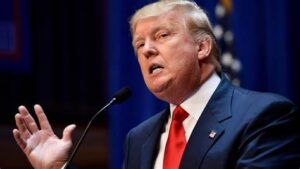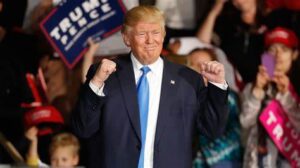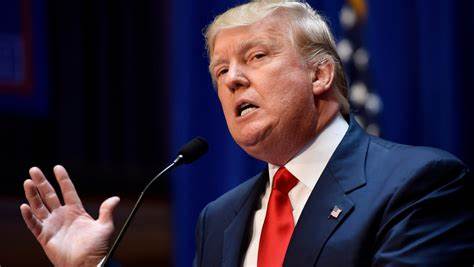US Averted Likely Pak-India Nuclear War, Says Trump

Washington D.C., May 2025 — Former U.S. President Donald J. Trump has claimed that his administration intervened to prevent a likely nuclear confrontation between India and Pakistan during his tenure. The revelation, made during a recent campaign event in Michigan, has reignited global conversations about South Asia’s volatile security environment and the often behind-the-scenes role of the United States in maintaining regional stability.
📰 The Statement: What Trump Said

Addressing a packed audience on May 14, Trump said:
“People don’t know how close India and Pakistan came to using nuclear weapons. It would have been catastrophic. My team stepped in, made calls, and it stopped. We averted a war that would have killed millions.”
Though Trump did not provide detailed timelines, sources suggest he may be referring to the 2019 Balakot-Pulwama crisis, when tensions peaked following a terror attack on Indian paramilitary forces, and both countries conducted retaliatory airstrikes across the Line of Control.
⚠️ 2019 Flashpoint: How Close Were We?
In February 2019, after a deadly suicide bombing in Pulwama, Jammu & Kashmir, killed over 40 Indian soldiers, India responded with an airstrike on a terrorist training camp in Balakot, Pakistan. Islamabad retaliated with its own air incursion, and both sides placed their militaries on high alert.
Behind closed doors, U.S. diplomats, along with counterparts from the UAE and Saudi Arabia, reportedly engaged in backchannel diplomacy to de-escalate the situation.
“The U.S. played a pivotal role, especially in convincing Pakistan to release the captured Indian pilot, Abhinandan Varthaman,” said a former U.S. State Department official familiar with the incident.
🇺🇸 U.S. Diplomatic Influence in South Asia
Trump’s administration had a complicated but strategic relationship with both New Delhi and Islamabad. While strengthening defense and trade ties with India, Trump also maintained transactional cooperation with Pakistan, particularly on the Afghan peace process.
His recent remarks underscore Washington’s critical but often understated role in crisis management between two nuclear-armed neighbors.
Key Points:
-
The U.S. urged both sides to exercise restraint in 2019.
-
High-level phone calls between U.S., Indian, and Pakistani officials helped lower tensions.
-
Trump’s intervention allegedly included direct communication with both Prime Ministers.
🔍 Fact-Check and Reactions
While experts acknowledge U.S. involvement, many view Trump’s version as exaggerated for political gain during his 2024 presidential campaign trail.
“There’s no doubt the U.S. contributed to de-escalation, but to say it ‘averted a nuclear war’ is a stretch,” said Michael Kugelman, South Asia expert at the Wilson Center.
Neither the Indian nor Pakistani governments have formally responded to Trump’s recent comments. However, former Indian diplomats have reiterated that India maintained full control over its military posture during the crisis.
🧭 Broader Implications
Trump’s assertion, whether fully accurate or politically amplified, serves as a reminder of the fragile peace in South Asia, where deep-rooted conflicts can escalate rapidly in the absence of effective diplomatic channels.
It also raises important questions about:
-
The future role of the U.S. in South Asia under shifting administrations.
-
The need for a formal nuclear risk reduction mechanism between India and Pakistan.
-
How such public disclosures may affect bilateral ties in the current geopolitical climate.
📌 Conclusion
Former President Trump’s claims about averting a potential nuclear conflict between Pakistan and India have cast new light on one of the most dangerous moments in recent South Asian history. Whether seen as a genuine diplomatic success or campaign bravado, the statement has sparked fresh debate over global crisis management, the importance of backchannel diplomacy, and the precarious balance of peace in a nuclear-armed region.


Leave a Reply